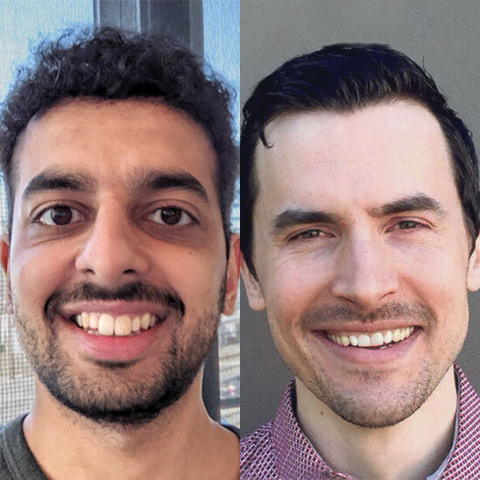Iyyer, Domke Receive National Science Foundation CAREER Awards

Mohit Iyyer and Justin Domke, both of UMass Amherst’s College of Information and Computer Sciences (CICS), have just received CAREER grants from the National Science Foundation (NSF), among the most prestigious grants that the NSF offers. This makes four CAREER awards for CICS this year—so far.
The NSF’s CAREER program is intended to provide junior scholars who have the potential to serve as role models, both in their research and teaching activities, with significant funding. The ultimate goal of the grant program is to help cement the foundation for a lifetime of integrating research and teaching activities. Iyyer and Domke join Mohammad Hajiesmaili and Cameron Musco, also of CICS, as winners of 2021 CAREER grants.
Iyyer’s research specialty is natural language processing, or the study of how to make computer languages understand human language. Iyyer will spend the next five years building text generation systems that interact with people. Think of these so-called “machine-in-the-loop” writing assistants as digital TAs that can help those who are seeking to learn to write or to improve their writing skills. Iyyer will be working with Protagonist Labs, a private company that runs online platforms for collaborative storytelling, to help generate publicly released models and open-sourced code for other researchers working on natural language generation.
Domke’s work also engages machine learning, but is more focused on probabilistic models, or models that combine data with an expert’s background knowledge to make reliable predictions. These models are used widely across science, government, and business. However, such automatic methods work well for only relatively modest problems—the more data there is, the more need there is for an algorithmic expert to manually design an algorithm. This is difficult and reduces the scope of the problem to which probabilistic models can be applied. Domke will spend the five years of his CAREER grant refining and automating the techniques needed for the probabilistic models to work with ever-larger amounts of data.